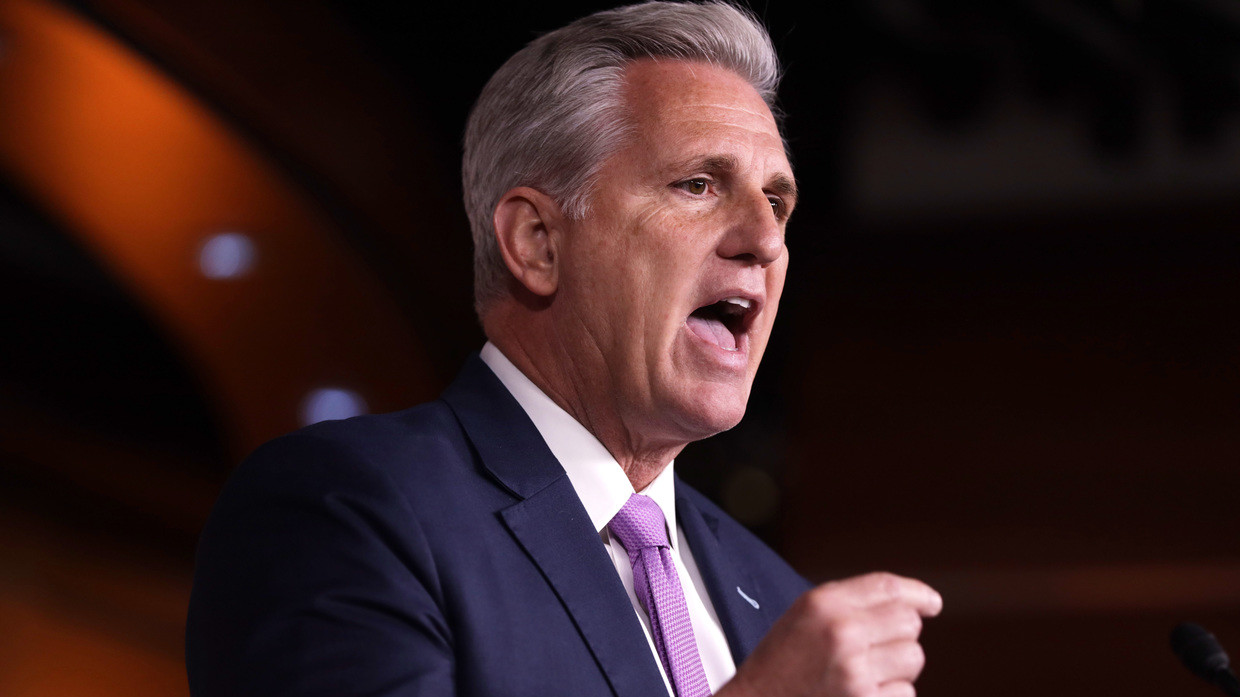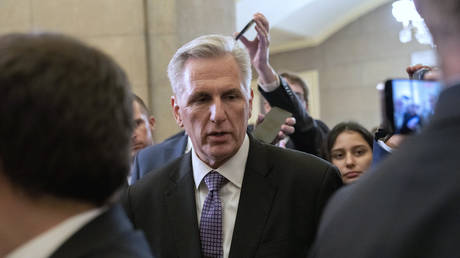Congressman Kevin McCarthy, a California Republican, has not managed to overcome the opposition of 20 or so members of his party to become speaker of the US House of Representatives. Even after the eleventh roll call in three days, on Thursday evening he remained short of the 218-vote majority required for the post.
Facing a mutiny from within his party in the form of the pro-Trump House Freedom Caucus, McCarthy was only able to secure 200 votes in the latest contest, despite making additional concessions to the dissenters since Wednesday’s failed votes.
In addition to promising that more members of the Freedom Caucus would be able to serve on the Rules Committee, he agreed to a vote on congressional term limits – a potentially tectonic shift in the third-oldest Congress in US history – and promised to make it easier for representatives to remove the speaker, whoever that may end up being.
Even support from former President Donald Trump and former VP Mike Pence – both of whom urged party members to back the former House minority leader – was unable to push McCarthy over the majority line.
Democrats have remained united throughout the votes, with all 212 party members backing Rep. Hakeem Jeffries (New York). Nancy Pelosi, the party’s long-time congressional leader, opted not to seek another term as speaker, though she remains firmly ensconced in the seat she has occupied for 35 years.
Opposition to McCarthy among the Freedom Caucus is based on his perceived weakness on pet issues such as the border and government spending. However, many Republicans are growing increasingly restive with the never-ending votes, urging their more idealistic counterparts to put their objections to the side as none of the newly elected representatives can even be sworn in until the job is filled.

With 222 Republican representatives elected to the House for the 2023 term, McCarthy can only afford for four members to defect. The three-day debacle is the first time a speaker vote has failed in over a century.


